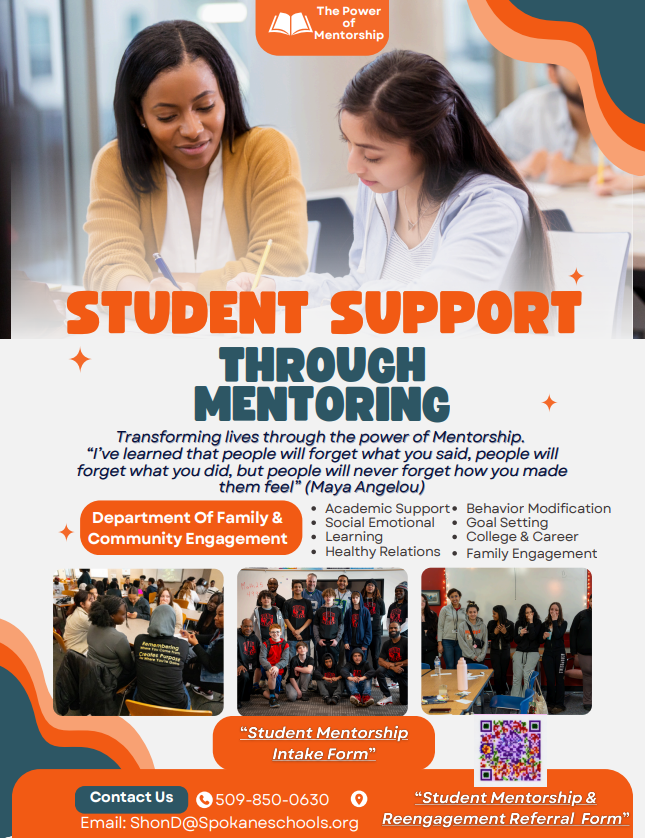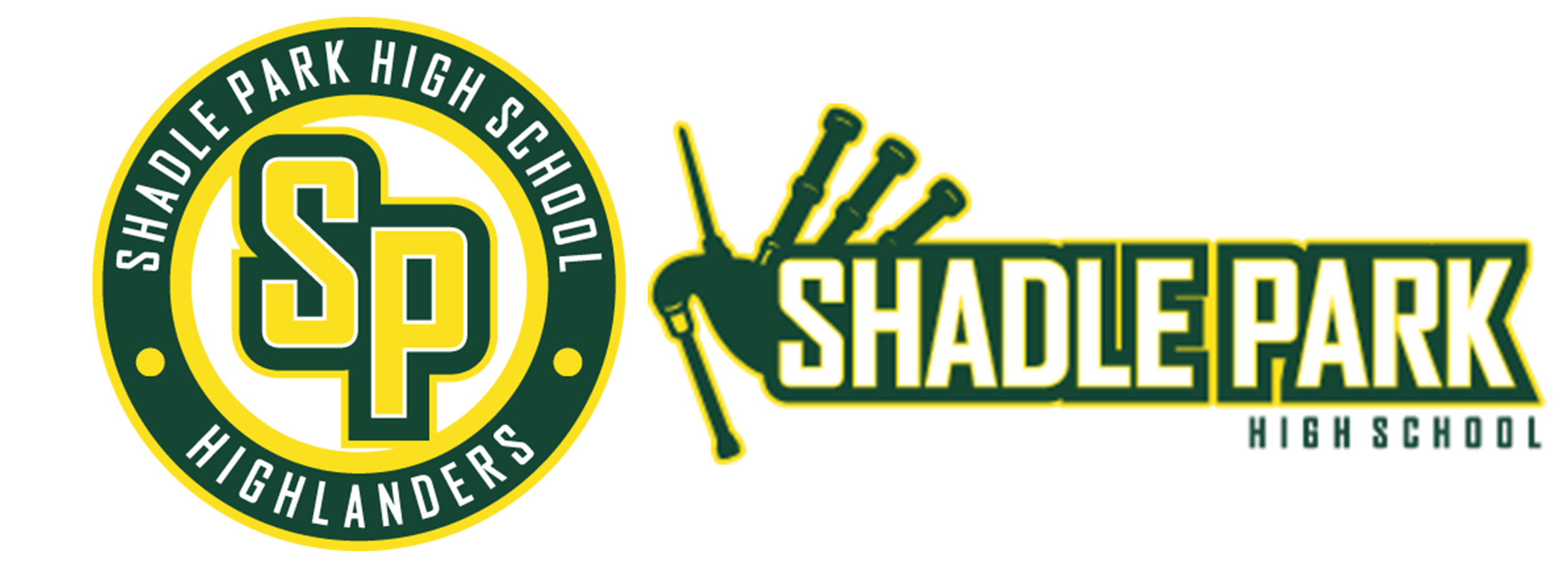Resources & Supports
Counselors:
Calvin Bruce (9th Grade Counselor)
Stephanie Filippini (9th Grade Counselor)
Christy Peterson (10th Grade Counselor)
Lesa Renner (11th Grade Counselor)
Tippy Terrell (12th Grade Counselor)
Provide mental health crisis support for students
Provide short term individual and small group counseling services for students
Advise and support academic and future planning
Connect students and families with community resources
Collaborate with classroom teachers to provide SEL support
Coordinate and support student transitions between schools and grade levels
Facilitate and/or collaborate around MTSS teams
Career and College Readiness Specialist:
This position will work with specific schools at all age levels to connect students to out of school time (OST) activities, athletics, clubs, STEM academies, culturally responsive events, summer programing, and youth programming during extended school breaks.
Engagement Navigator
Support students with their High School and Beyond Plans in SchooLinks
Focusing on steps to be ready for their post-high school goals (Military, Technical School / Apprenticeship, 2-Year College, 4-Year College)
Researching and applying for college, sending transcripts, applying for scholarships, researching careers that lead to living wage jobs.
Filling out the FAFSA
Behavioral (Mental) Health Therapist:
Health care providers
Provide intense one on one behavior health therapy
Focused on serving students who are Medicaid eligible
Students may be referred by school administrators and/or counselors
College Success Foundation Coordinator:
Works with a cohort of 50 Junior and 50 Senior College Bound students (determined in middle school)
Contracted thru College Success Foundation in Partnership with SPS
Assists in FAFSA Completion
Facilitates college visits and summer camps/ trips through CSF
FOCUS: Career Guidance, college admittance, and college tours
Drug & Alcohol Counselor:
Works with a small caseload of students seeking support and guidance in relation to overcoming addiction and developing coping strategies they can access instead of turning to drugs and alcohol.
Teachers Alcohol, Tobacco, and Other Drugs (ATOD) course.
Accepts referrals from admin, counselors, teachers, parents, students regarding specific cases where students are using Drugs/Alcohol.
DFCE Mentors:
Create and support students socially and emotionally through groups and individual sessions
Liaison for students and families between school and community resources

Campus Safety Specialist:
Facility Supervision and Physical Security of Property
Support Crisis Management
SEL Support:
Build positive working relationships with students, staff, families and community members
Serve as mentor & positive role model
Assist with de-escalate and diffuse conflicts between students
Assist with Restorative Practices as needed
Interventionists:
Steve Yelenich (Class of 2026 Academic Support, Class of 2027 Academic Support)
Darnell Handcox (Class of 2025 Academic Support)
Nick Neely (Class of 2028 Academic Support, In-School-Intervention Support)
James Alexander (School Community Specialist, In-School-Intervention Support)
It is the role of the interventionist to build relationships with individual students to help them find success. The role of the interventionist is to provide academic supports to students to help them build the capacity to be successful. This includes, but is not limited to:
Grade level team supports
Every interventionist is assigned a specific grade level for focused interventions.
Monitor grades, attendance, behaviors
Attend grade level meetings
Communicate with grade level counselor and admin.
Communicate with grade level specific teachers and staff
Academic supports and content specific interventions
Designated times in the HUB to support students with academics
Communicate directly with teachers about assignments, assessments, etc.
Ensure communication (using pass system and email) when students are in the library.
Set up designated times to focus on specific content (i.e. : 2nd period on Tuesday will be Geometry support – and students are intentionally selected to attend for extra support)
Encourage organizational and planning skills to support academics – help student self-advocate with teacher communication, grade checks, planners, etc.
Social and emotional support
In conjunction with the grade level counselor, provide social/emotional support as needed.
Encourage students to access de-escalation space in A106 (with James Alexander), then determine strategies to help student navigate the school day/classes/peer conflict, etc.
Build relationship with individual students to focus on success via goal setting, academic goals, conflict resolution, etc.
Check and connects – attendance, behavior, grade supports
Each interventionist will have an identified group of 20-25 students within their grade level as a caseload. These students need more consistent and intentional check-ins.
Connect with students and teachers in the classroom.
Follow up on attendance concerns.
Contact parent/guardians as needed to discuss concerns (in conjunction with grade level team).
Home visits as determined by need.
Hallway interventions
Bite2Go Program Coordinator:
Bite2Go is a food assistance program available for families in need through SPHS.
TreeHouse Graduation Success Coordinator:
Serves a caseload of students in Foster Care
Connects caseload students with community services
Contacts Social Workers and Primary Care Givers
Connects with caseload students on Academic Progress.
HEART Program Liaison:
Identify and enroll HEART/McKinney-Vento eligible students & families (i.e., homeless students & families)
Set up transportation for SPS HEART students to/from school (HEART route or STA pass)
Enroll students in free lunch programs
Provide referrals to clothing banks, low-cost/free medical care
Utilize ‘Check & Connect’ interventions to track student attendance, behavioral incidents, and grades/course completion
Provide Unaccompanied Youth (UY) with information re: UY FAFSA unique steps and assistance completing the FAFSA as requested/accepted
Solicit donations and distribute donated items as time allows and needs arise
Alternative Learning Experience (ALE):
David Montecucco (Grades 9-12, Shadle ALE Program)
Michael Noel (Grades 9-12, Shadle ALE Program, IEP Support)
The Shadle ALE program allows for more flexible programming to meet the needs of each individual student in grades 9 - 12 who may be struggling to find success in the traditional high school classroom setting. ALE stands for Alternative Learning Experience. It is a state supported alternative for a traditional comprehensive education environment. The program allows flexibility and autonomy for students to earn credits. Prior to enrollment, each student (and their family) hold a pre-conference meeting with the teachers to determine the best structure for accessing their education. This conference will include goal setting, an attendance agreement, an individualized academic plan with clearly defined benchmarks for weekly participation and monthly progress and determine the future pathway for the student, whether that is transitioning back into the traditional setting, preparing to apply to a different school such as On-Track or NewTech Skills Center, or moving towards a GED.
This program runs Monday – Thursday with the following options available:
Full virtual (student does not come to Shadle during the day) – this option is for students that learn best while at-home and on a computer. Weekly virtual meetings will be set up with one of the teachers to monitor progress and address any concerns or questions.
½ day in Shadle ALE – this option is for students that struggle with being in school for a full day. Students accessing this option will attend class from 8:00-11:00 or 11:30 – 2:30 each day (Monday – Thursday).
Full day in Shadle ALE – this option is designed for students that find the transitions between classes a barrier to success. A full day in the Shadle ALE program is specifically designed for students to work on content at an individualized pace as opposed to the pace of a traditional classroom. This option may also be best for students that are credit deficient.
½ day in Shadle ALE, ½ day in elective or content classes within the building. This option is designed for students that struggle with one or more core content subjects (Math, English, Science and History). These students will access the ALE program in the morning from 8:00-11:00 for identified core subjects, receiving individualized support for academic success. Students will then go to lunch and attend elective courses in the afternoon. Since this ALE program does not have class time on Fridays, students that choose this option will have the choice of working in a separate designated location within Shadle from 8:00-11:00 on Fridays or starting school at 11:00 on those days.
Instructional Coaches:
Support the UDL Instructional Framework (and supporting strategies):
Contribute to the planning/organization of Professional Learning Days
Facilitate sub-out collaboration opportunities including both lesson studies and instructional rounds
Facilitate Individual Coaching Cycles & Teacher Support
Student Services Coordinator:
Parent and staff support regarding school policy and procedures
Staff support regarding school discipline policy and procedures
Staff support around student behavior
Guidance around alternate educational services
Staff support regarding the 504 process
Professional Development and support on student wellness, LGBTQ+, Suicide Prevention
Support regarding parent custody/parent plans/protection orders/legal documents
Special Education Coordinator:
Parent support regarding the evaluation and IEP process
Staff support regarding the evaluation and IEP process; this includes questions related to compliance and special education law
Staff support regarding discipline and manifestation determinations
Staff support regarding struggling students
Staff support regarding CPI and reporting requirements
Support with the IEP process of students who move into our district
Professional Development for supporting students with IEPs
Special Programs Support
School Psychologist:
Conducts evaluations/ facilitates testing to determine SPED eligibility
Reviews IEPs for placement of students in SPED courses
Board Certified Behavior Analyst:
Conduct in-depth FBAs to help better determine the “why” of the behavior (Tier 3)
Create and/or assist in the development of BIPs
Provide embedded coaching around BIP implementation
Create and support the development of ongoing data collection
Partner with school teams and families around the design of student support
Provide professional development around evidence based behavioral strategies
